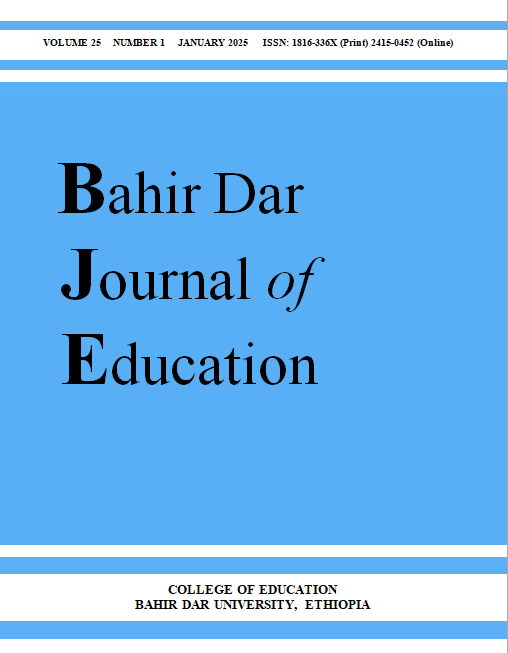The predictive effect of principals’ adaptive leadership behaviour on teachers' workplace engagement in public secondary schools of Amhara, as perceived by teachers
DOI:
https://doi.org/10.4314/10.4314/bdje.v25i1.3Keywords:
Adaptive leadership, teacher engagement, secondary schoolAbstract
The study examined the effect of principals’ adaptive leadership behavior on teachers' work engagement in public secondary schools in the Amhara regional state. A correlational design with a quantitative approach was employed. Using multistage and proportionate stratified random sampling, data were collected from 967 teachers via questionnaire. The data were analyzed using Pearson product-moment correlation (r), multiple linear regression, and one-way ANOVA. A positive and statistically significant correlation was found between principals' adaptive leadership behavior and teachers' work engagement (r =.682, p <.001). Moreover, 46.1% of teachers' workplace engagement variation is explained by the combined effect of adaptive leadership behaviors. Significant differences were found in teachers' perceptions of adaptive leadership behaviors across zones (F (5,854) = 6.407, p < 0.01), but no significant differences were observed in their perceptions of workplace engagement (F (5,854) = 1.289, p =.267). In conclusion, principals' adaptive leadership behaviors significantly predict and enhance teachers' workplace engagement, highlighting its practical importance.

